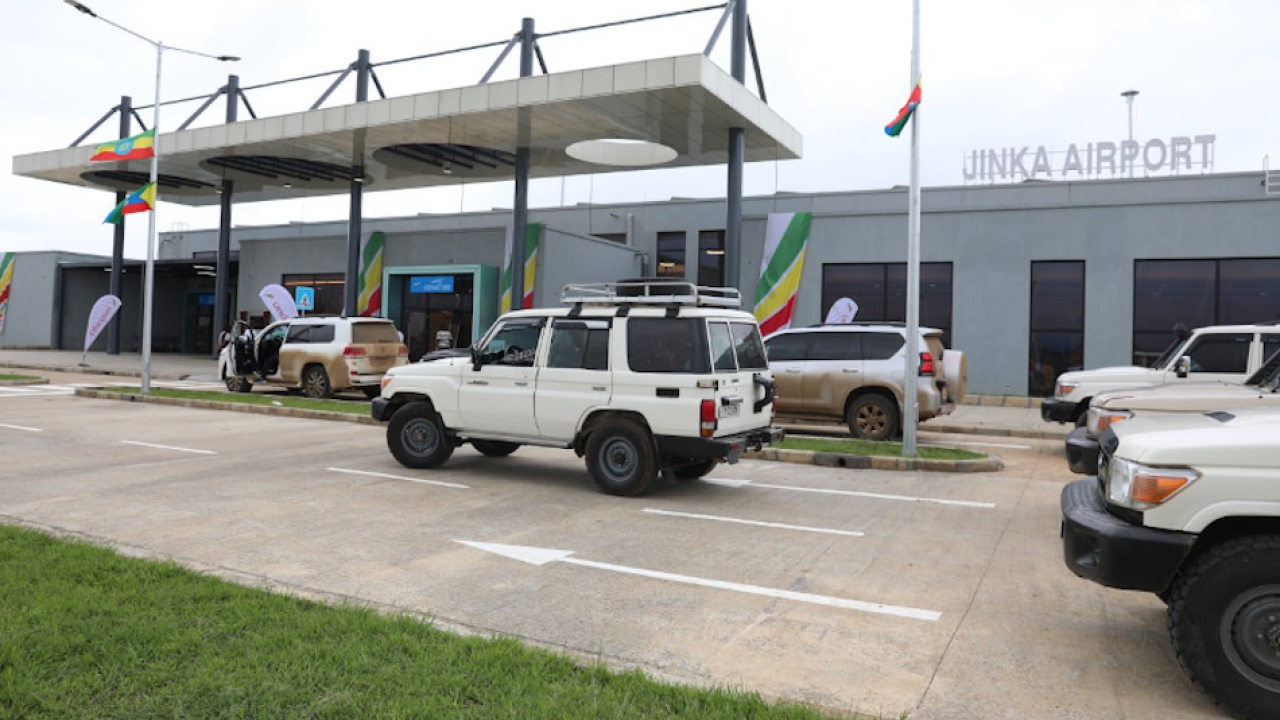NAHCO moves back to the future

Olatokunbo Fagbemi: “We would like to expand across west Africa. Any opportunity that comes and we are ready to take advantage.” Picture: NAHCO.
Before Covid-19 struck, NAHCO, the oldest handling company in Nigeria, had ambitious plans to grow its business by up to 500%. Now, although those plans have been slowed by the pandemic, CEO, Olatokunbo Fagbemi, is bringing the strategy back on course.
“We will go back to that transformation plan. We believe we will get there; maybe not in five years because we are in a kind of reset, but we are still on that trajectory of growth,” she said.
Fagbemi is proud to highlight the company’s priorities and experience of triumphantly confronting the effects of the pandemic.
In mid-March last year, the Nigerian Government declared a total lockdown in response to the pandemic, which lasted for about three months.
Despite record revenue losses by airlines both during and after the lockdown, Nigeria’s two major handling companies – NAHCO and Skyway Aviation Handling Company (SAHCO) – adapted to more freight handling.
“About 60% of our business before Covid was focused on passenger and aircraft handling. Though the decrease in passenger traffic has affected us and some of the airlines have not even come back on board, we have also adjusted to the reality of cargo in the cabin, which is a lot of what we are doing now,” explained Fagbemi.
NAHCO employees have been proud to keep essential supplies moving, especially medical supplies, personnel protective equipment and so on.
However, the work changes have not been without their challenges.
“On cargo, one of the problems we now face is the issue of social distancing in the warehouse,” said Fagbemi. “For our staff, there is a way in which you carry a load on board when it is quite heavy or of a particular size. How much social distancing can be achieved while doing that?"
“So, given the nature of the business, we push as much as possible for people to wear their nose masks and wash their hands. It is also about sharing knowledge and getting people to understand that Covid is still real.”
Fagbemi further highlighted other Covid19 challenges, like the sanitizing of aircraft in addition to cleaning. This put some pressure on the organisation, as management not only had to invest in extra chemicals, PPE, and training, but also contend with staff attitudinal change towards wearing of masks and gloves.
“If you couple all this increase in cost and change in attitude, and combine it with a fall in industry revenue, I don’t think we need say anything more about the industry’s challenges in 2020,” she said.
However, 2021 has brought with it new opportunities.
“The airline business is gradually picking up and we will also pick up and continue to grow,” said the CEO.
“We would like to expand across west Africa. Any opportunity that comes and we are ready to take advantage. We will always keep our eyes open for opportunities in the region in the form of partnerships and collaboration."
“Gradually, we see ourselves coming out of darkness into light. We see a consistent sure path to recovery. We believe that, with support from government, our partners and stakeholders collectively, this will turn around for the good of the nation.”
Fagbemi commended the Nigerian Civil Aviation Authority (NCAA) for its role in sustaining businesses since the outbreak of Covid-19, emphasising the importance of regulatory compliance.
The company is now planning to spend around $167,000 – part of the £60 million allocated by the Nigerian Government as a palliative to the aviation industry – on upgrading its facilities.
“Basically, our focus now is to grow our business,” she explained. “By and large, the aviation industry in Nigeria has stabilised. There are expectations that we will get to pre-Covid levels by 2022-2023 for passenger handling.”
A lot of the immediate growth is coming from cargo rather than passenger. In the last quarter of 2020, NAHCO’s monthly cargo export from Murtala Muhammed Airport in Lagos had grown from 500 metric tonnes to one million metric tonnes.
Now, in addition to her plan for growth, the CEO is also calling for a more structured approach to the way ground-handling is priced. For years, NAHCO and SAHCO have been in stiff competition, which sometimes involved fluctuations in pricing. Fagbemi believes this must change.
“If we are able to charge appropriately for our ground-handling services, we can do better,” she concluded.
Stay up to date
Subscribe to the free Times Aerospace newsletter and receive the latest content every week. We'll never share your email address.

